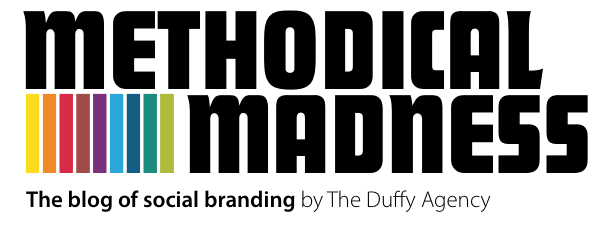4 things to keep in mind when developing a social media policy
 Tuesday, January 25, 2011 at 3:01PM
Tuesday, January 25, 2011 at 3:01PM  Last week, the U.S. Army announced the release of their 2011 Army Social Media Handbook. The handbook outlines the proper use of social media by soldiers and commanders, as well as reminding personnel that
Last week, the U.S. Army announced the release of their 2011 Army Social Media Handbook. The handbook outlines the proper use of social media by soldiers and commanders, as well as reminding personnel that
Last week, the U.S. Army announced the release of their 2011 Army Social Media Handbook. The handbook outlines the proper use of social media by soldiers and commanders, as well as reminding personnel that "Our adversaries are trolling social networks, blogs and forums, trying to find sensitive information they can use about our military goals and objectives."
More than a reminder for soldiers, this handbook serves as an extension of the U. S Army social media policy that the army put into place last year. Obviously, the consequences of not following this social media policy for soldiers could be quite dire. However, even if national security doesn't depend on it, as a recent article on Entrepreneur.com pointed out, your company needs a social media policy.
Putting a social media policy together is not as daunting as it may seem. But you should still be thorough. Many high-profile companies like IBM and Intel have published theirs online. These may act as good outlines for your own. In addition, the Social Media Governance website has an online database of over 160 social media policies for your perusal.

1. Always define what you mean by social media
It may seem obvious, but it's always better never to assume. Clearly spell out or list the sites you are talking about or even the type of sites you are talking about when you refer to social media. You may even include a caveat that if an employee is not sure if a site is considered a social media site, they should ask their supervisor or HR department.
2. Confidential information should remain confidential
Be very explicit about mentioning any information that is confidential or proprietary about your company and about your clients. Having an employee commenting on Twitter about a client's product that is still under development will undoubtedly lead to some angry communications. Even worse would be an employee venting about a customer on FB or posting a video that damages your brand.
3. Use disclaimers
"The opinions expressed here are the views of the writer and do not necessarily reflect the views of ..." It's an easy enough line to write, but all too often it is not used. Ensure that if an employee does comment on some aspect of your business, especially in a blog or other online publication, that they include a disclaimer.
4. Promote honesty above all else
Be up front and honest in all social media conversations just as (hopefully) you would in a face-to-face conversation. But it shouldn't just stop there. Be respectful when it comes to things like copyright. Ignorance of the law is no excuse for breaking it. If an image is found on Google that would be perfect for a blog post, don't just copy and paste. Ask permission, and if you can't find out who owns it, find another image. There are plenty of sites out there like, istockphoto.com, that provide high-quality images at affordable prices.

Reader Comments